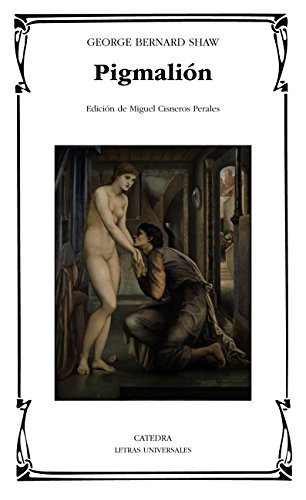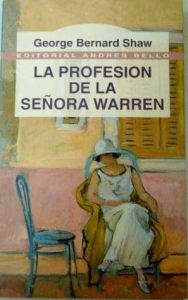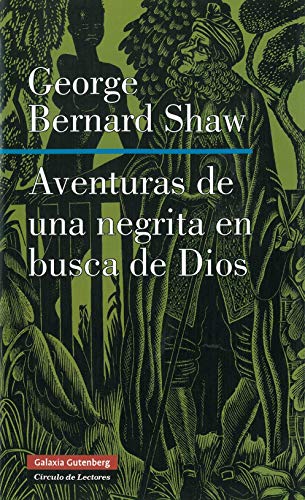Dramaturgy is one of the most peculiar artistic expressions. The great plays are today timeless classics written from Euripides to the last great authors of the mid-twentieth century. Since then the theater has had to share space with the cinema or television and its great consideration of literature for the scene survives thanks to adaptations or reinterpretations.
I do not want to say that current playwrights are not good, but there is no doubt that their consideration as creative personalities is blurred and diverted to the final result of a work of whose invoice few of us end up remembering the authorship.
George Bernard Shaw was one of those last and great exponents of dramaturgy as a literary result on tables (in my opinion with Bertolt Brecht or later Samuel Beckett). The curious thing is that his novel production never matched the level of recognition of his theatrical work. Without a doubt Shaw's greatest ability was to give his characters life, emotions, particular morality, that maieutic capacity capable of overwhelming, moving, inciting...
And yet, despite not gaining similar prestige in the novel genre, today we can enjoy his plays in highly appreciated books with which we ourselves can compose scenes and act as stagehands to locate the scenes and enjoy juicy dialogues, monologues and soliloquies soaked in the critical vision of the great Bernard Shaw.
Top 3 Recommended Novels by Bernard Shaw
Pygmalion (My fair lady)
Creators are usually people ahead of their time. Bernard Shaw already guessed that women had to change their secondary role in society. The protagonist of this work Eliza Doolitle begins by participating in a certain way in the roles of her time. However, the girl has her concerns...
From the outset she wants to learn language and to do so she goes to Professor Henry Higgins who is in charge of teaching her language and many other aspects that can turn her into a respectable young lady of her time. What Eliza doesn't know is that in the process Higgins is playing with her in some way.
The professor has bet with a colleague that he is capable of transforming the vulgar lady into a young man of manners… And here something singular happens, in some adaptations for theater and cinema the end is that Eliza marries Higgins, assuming somehow way that the end justifies the means.
However, the initial ending, the real ending, is that Eliza, endowed with knowledge and culture, already feels freer and ends up marrying a young gentleman with whom she truly falls in love ...
Mrs. Warren's profession
In the case of Bernard Shaw, carnal love was born in a way unusual for his time... or if not unusual, at least usually hidden from the social consciousness of the time. The truth is that at 29 years old it was time for him to give free rein to his physical urges... and it had to be the widow Patterson who guided him in the matter of shared orgasm.
Perhaps this anecdote brought here partially justifies the always transgressive intention of this work regarding the approach of prostitution.
Bernard Shaw's universally empathetic capacity opens the way for this work to offer all the edges of the matter, at a time when talking openly about it was much more of a transgression than today, despite general similarities in terms of the shared taboo and the legal vacuum.
Adventures of a black girl in search of God
And when the young black woman seemed convinced of the religion that had been instilled in her, she suddenly wondered Where is God? The question reminds me of an old childhood friend who is no longer with us.
We were 10 years old and he insisted to the priest that he told us about God. Where is God in wars? or where is God among poverty? I no longer remember the priest's answers, only the impudence of that rebellious boy who ended up devouring life until the final embarrassment ... The doubt is as childish as it is exact and pertinent. Is it a trick? What is the purpose of the test? If by test it were long ago that we would have suspended with note after thousands of new crucifixions of possible gods revisiting the valley of tears.
The point is that the young black woman in this work sets out on a journey to locate God. Deep Africa may not be the best place to ratify your faith in human beings as the work of God.
What the bold woman ends up discovering will have a lot to do with Shaw's own political ideology, a convinced defender of freedom towards the conviction of experience or devotion, whatever moves you inside.



